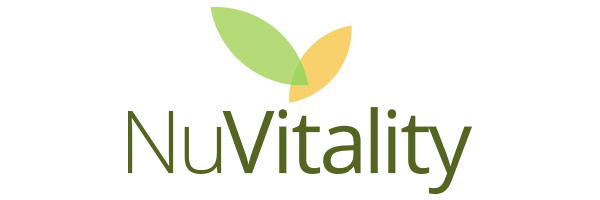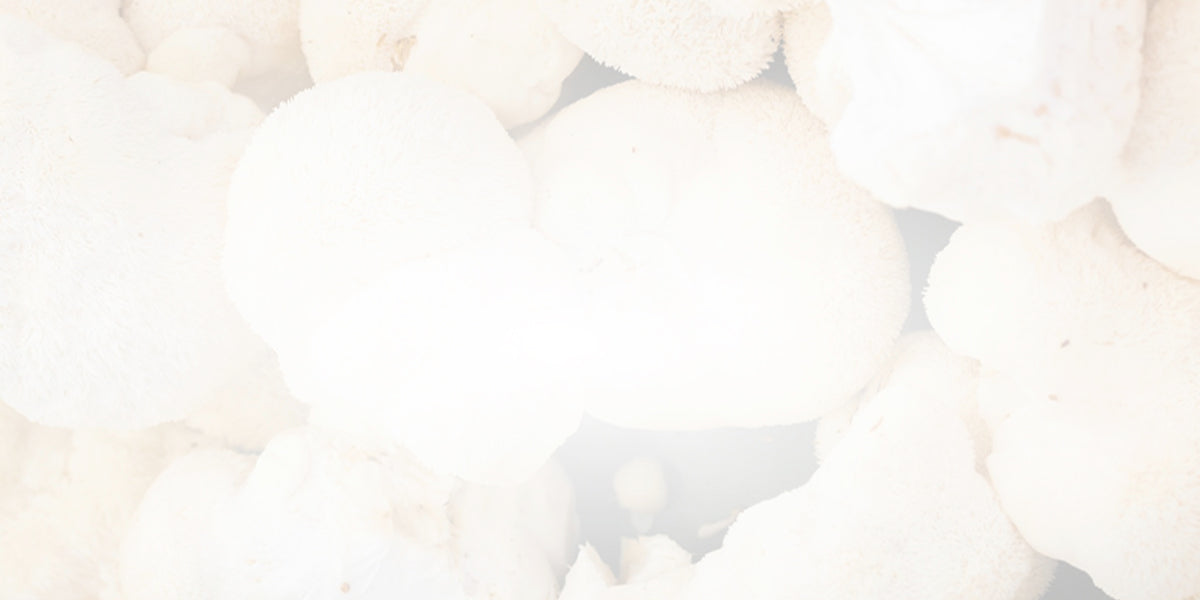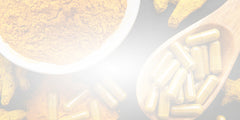
Lion's mane is more than just a fungus with an interesting name. It is an edible substance that contains a host of health benefits. It can offer benefits ranging from physiological to neurological to mental health. However, for all the benefits lion's mane might have to offer, there is still some uncertainty about it, especially since this mushroom has to compete with so many pharmaceutical compounds and other natural supplements that seek to dethrone it.
One of the bigger questions about lion's mane is whether it falls under the category of a nootropic substance. Nootropics are a highly sought-after medicinal supplement for several reasons relating to cognitive function. As a result, this question might just make or break the concept of lion's mane as a supplement for you. So, finding an answer is probably something that has been on your mind for a while. With this article, we hope to help provide some information regarding lion's mane's status as a nootropic.
What is a Nootropic?
You may already have a working knowledge of what a nootropic is. However, if you have only recently heard the term, you might be interested in a brief crash course.
Nootropics, also known as "smart drugs" or "cognitive enhancers," refer to any form of supplement, drug, or general substance that has a cognitive effect. The most common prescription nootropics are used to treat cognitive or attention disorders like Attention Deficit Hyperactivity Disorder (ADHD). The reason is that nootropics are supposed to increase the qualities these conditions affect.

Nootropics may be able to improve attention, memory retention, executive functions, creativity, and even motivation. There are all kinds of prescription nootropics, including the ever-infamous Adderall prescribed for ADHD. The goal of mainstream pharmaceutical nootropic drugs and supplements is to help regulate neurological functions and improve focus and clarity in patients with these conditions.
Nootropics have also found another consumer base in those lacking diagnosed cognitive issues as a way to turbocharge their brains. University students often use nootropics as study aides to retain information while studying or even motivate them to study in the first place. However, most medical-grade nootropics are unsafe to be used by anyone other than the people for whom they are prescribed.
Pharmaceutical nootropics are not necessarily ideal for everyone as some prefer to introduce those benefits through more natural means. This situation brings us to the fungus that brought you here today.
Is Lion's Mane a Nootropic?
The answer to this question is actually a little more complicated than you might think. Lion's mane is a nootropic, though the regulations make finding official nootropics a little more complicated. However, it does have nootropic effects. So, in the most fundamental definition, lion's mane is a nootropic due to the effects it offers but has not been evaluated or graded by the Food and Drug Administration to be marketed as one.

That said, the effects of lion's mane mushrooms are nootropic in nature, and even the raw version of the fungus has the potential to offer some of the nootropic benefits without any processing. There are also specialized supplements that have been refined to maximize the nootropic effects of lion's mane. At this point, the question about this nootropic fungus becomes a matter of what kind of nootropic benefits it can offer.
What Nootropic Benefit Does Lion's Mane Offer?
As previously discussed, nootropics deal with cognitive issues that can arise from any number of conditions known to alter some of our more fundamental organic functions. Among these cognitive functions is our capacity for memory, which is subject to debilitating or otherwise crippling issues like Alzheimer's. Given the fact that Alzheimer's directly impacts our ability to remember important information, it is one of the most horrifying diseases in existence today. Yet, there is some evidence that suggests lion's mane has the potential to provide nootropic benefits toward fighting it.
While the studies are still relatively new and the tests have been conducted only on mice thus far, lion's mane has shown incredible promise in its nootropic effect on Alzheimer's. The study had mice suffering from memory loss ingesting lion's mane regularly. Those mice consuming the lion's mane showed lower rates of memory loss and even exhibited signs of protection from amyloid-beta plaques, which cause neuronal damage. These plaques are known to accumulate due to Alzheimer's, so the fact that lion's mane can protect against them is a good sign of its effects against Alzheimer's in general.

On a more mundane level, lion's mane is an excellent source of two vital compounds. Hericenones and erinacines. These are such important compounds because they promote the nerve growth factor in the human body responsible for growing or regrowing nerves throughout the body. What makes hericenones and erinacines so special is that they trigger the nerve growth factor in the hippocampus, which is the part of the brain in which memory is stored.
While this does have more critical potential in treating conditions that negatively affect the human memory capacity, it also allows better retention of information by promoting the growth of new nerves. This benefit was also backed by a study in which mice were fed lion's mane and experienced enhanced neural nerve growth in the hippocampus. This substance can promote superior memory retention in some individuals, similar to prescription nootropics for ADHD patients.
Lion's mane has great potential for treating conditions relating to cognitive dysfunction and memory issues alike. These traits prove lion's mane's potential as a nootropic supplement based entirely on its own natural composition rather than any pharmaceutical tampering. With that said, there have been no studies conducted that imply that lion's mane is able to improve creativity or motivation.
What Non-Nootropic Benefits Does Lion's Mane Offer?
Lion's mane is particularly useful because it offers benefits beyond the nootropic value. While we know this is not what brought you to this article, we thought it might interest you to know what else the mushroom affords you. One of the benefits most closely related to the nootropic effects is how lion's mane might assist with mental health. Mental health issues can be just as serious as neurological or cognitive conditions, and finding ways to fight them can be a challenge.
There has been some evidence pointing to lion's mane as a potential weapon against depression and anxiety, specifically, two of the world's most detrimental mental health issues. The studies surrounding this particular benefit revolve around the fact that some forms of anxiety and depression stem from chronic inflammation that makes life fairly difficult to live happily. Since lion's mane is an anti-inflammatory, studies have found that it could help with these particular variants.

However, the more exciting aspect relates to the nootropic effects lion's mane has on the brain's hippocampus region. The hippocampus regulates memory, but it also manages our emotional responses. This function means that if the hippocampus is suffering, our emotional responses might skew toward depression and anxiety. The animal studies on this particular phenomenon are still young, with human trials a long way away. However, the potential is there.
Researchers believe that improving the function of the hippocampus will help to mitigate the symptoms of depression and anxiety. This effect is supported by the results of the study in which the mice fed with lion's mane experienced reduced levels of anxiety overall. This just goes to show that even the non-nootropic benefits of this mushroom can still connect with its nootropic properties.
There are other health benefits associated with lion's mane, including the potential to protect against conditions like diabetes or cancer. However, these are topics for another time as our primary focus is using this fanciful fungus as a nootropic supplement. Unfortunately, nothing is perfect, and there has been some trouble with nootropic substances in the past.
The Issue With Nootropics
Despite the usefulness of nootropics, there is some baggage attached to supplements of this nature that extend to lion's mane. Nootropics have an unfortunate history of being falsely marketed with miraculous properties that no nootropic could possibly possess. This marketing has led to many scams meant to draw money from individuals looking to use nootropics. Even more unfortunate are the circumstances that drew government intervention to stop these particular scams.
Some of these falsely advertised products were not only unapproved by the FDA for any medicinal use but were unsafe for consumption. In addition, these harmful substances were being illegally advertised and sold within the borders of the United States of America, which caused illness in those consuming them. In 2019, the FDA stepped in and issued warnings against purchasing any substance that has not undergone sufficient scrutiny.

At this point, it is essential to note that the FDA has not rated lion's mane at all and neither approve nor disapprove of it. This lack of regulation, of course, begs the question of whether or not lion's mane brings with it any potential issues.
Are There Risks With Consuming Lion's Mane?
Since lion's mane is not officially rated by the FDA, knowing if there is any risk associated with the fungus is paramount to deciding to begin using it. Now, it is essential to note that no studies have been conducted to evaluate the side effects of lion's mane in humans, but studies have been conducted on animals. To date, there have been no reports of health trouble from the lion's mane specifically, but the studies should speak to that.
The studies that have been conducted on rats have included studies evaluating doses as high as 2.3 grams per pound of the rats' body weight. This dosage equates to about 5 grams per kilogram. The rats were given this abnormally high dosage every day, once a day for a month. A similar study using lower dosages was conducted over three months to reinforce the results. The result found that lion's mane had no adverse effect on the rats whatsoever.

That said, there is always the issue of allergies. Anyone with severe allergies to fungi, in general, will have a bad day if they consume lion's mane. Those individuals who have allergies to fungi exposed to lion's mane reported symptoms including difficulty breathing and skin rashes. However, no one without an allergy to fungus has reported side effects associated with the mushroom.
Knowing that lion's mane is safe in and of itself does not automatically make any available lion's mane suitable. The key is to purchase your lion's mane or supplement from a reputable vendor to ensure it has undergone the level of quality control required for a safe experience.
The Nu You
Lion's mane is more than just an interesting-looking mushroom with an equally interesting name. It has become a hot topic in the health world for its nootropic and non-nootropic effects. While lion's mane is a powerful nootropic substance, it is crucial to be aware that nootropics are not a guarantee and that you should take things slowly with any new substance.
However, the promising results of studies involving lion's mane are not something to be scoffed at. By taking lion's mane supplements, you might find that your ability to focus and retain information, along with your outlook on life, is vastly improved. The only real question is where you can get your supply.

For that, we at NuVitality invite you to peruse our stock of lion's mane mushroom supplements. Our products are safe and come with a no-risk guarantee. So, if you want to give your brain a boost with lion's mane, check out our store page and order a bottle today. We are eager to join you on the journey to the Nu, healthier you.
Do you have any questions or concerns about lion's mane or if you should take it? If so, please feel free to reach out and contact us at any time! You can contact us through multiple methods, which can be found here. Whether through the use of lion's mane or a similar supplement, we would love to assist you on your journey to Nu-found health however we possibly can!






